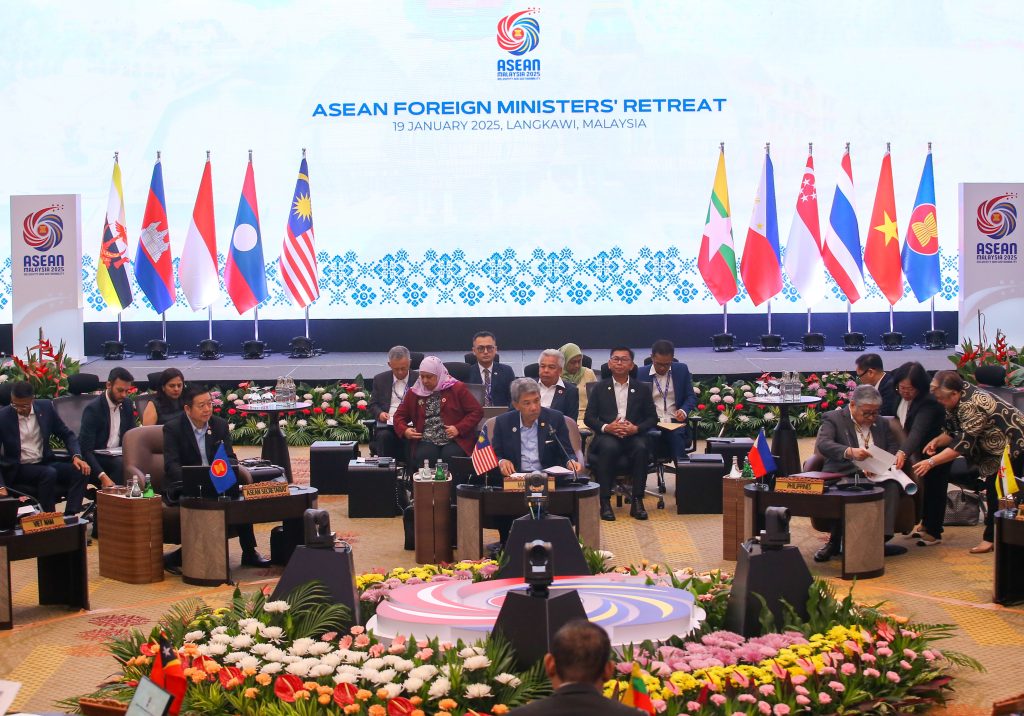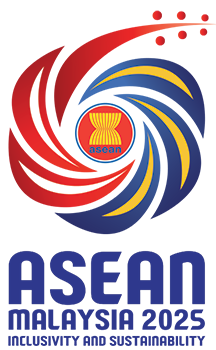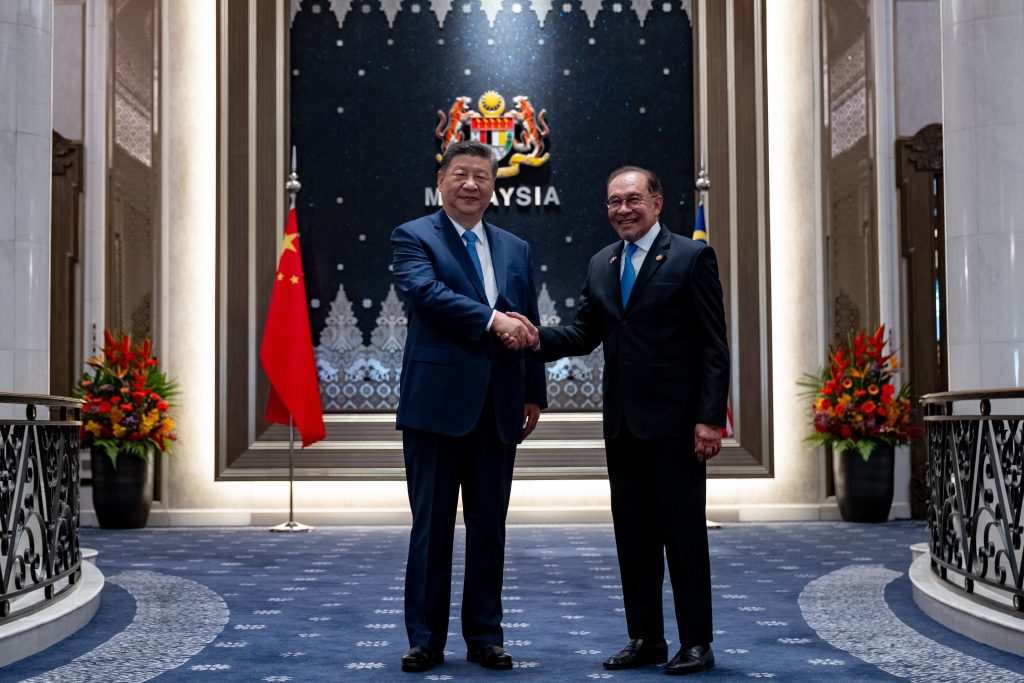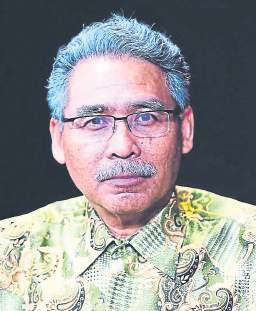
It is supported by 4 strategic plans: Political-security, economic, socio-cultural and connectivity
by SHAUQI WAHAB
 MALAYSIA is expected to direct ASEAN’s engagement on peace, cooperation and resilience under the ASEAN Community Vision 2045 toward greater involvement in global affairs while reinforcing its foundational principle of neutrality during the 46th ASEAN Summit.
MALAYSIA is expected to direct ASEAN’s engagement on peace, cooperation and resilience under the ASEAN Community Vision 2045 toward greater involvement in global affairs while reinforcing its foundational principle of neutrality during the 46th ASEAN Summit.
This year marks Malaysia’s fifth tenure as ASEAN chair, drawing around 20,000 participants, including delegates, staff and support personnel, to discuss regional cooperation and strategic initiatives.
The Asean Community Vision 2045 is supported by four strategic plans: Political-security, economic, socio-cultural and connectivity.
These plans aim to deepen regional integration, enhance economic resilience and address various challenges.
Focusing on ASEAN centrality and global neutrality, Nusantara Academy for Strategic Research senior fellow Dr Azmi Hassan said Malaysia’s priorities go beyond trade and economy.
While Prime Minister (PM) Datuk Seri Anwar Ibrahim had stressed economic matters as a priority, Azmi believes the broader objective is strengthening ASEAN centrality and its global relevance.
“I think ASEAN centrality will be the main focus. Anwar as the chairman wants ASEAN to be more involved in what is happening not only within ASEAN, but outside of it,” he told The Malaysian Reserve (TMR).
This ambition has already been evident in Anwar’s diplomatic engagements, such as offering Malaysia’s mediator role in international conflicts like the India-Pakistan dispute and expressing concern over crises in Gaza and Ukraine.

Anwar (right) meets Xi to uphold Malaysia’s and ASEAN’s neutrality, despite external pressure (pic: MEDIA MULIA)
Respectable Organisation
Azmi said this represents Malaysia’s intent to elevate ASEAN’s status as a very respectable organisation, capable of constructive engagement in global issues. However, the Myanmar conflict remains a sore point for the bloc.
Despite Anwar’s meeting with the Myanmar military junta during a visit to Thailand and receiving verbal assurances of a ceasefire, the continued aggression by the junta has undermined ASEAN’s collective peace efforts.
“So, I would say that this issue will not be a priority, because the junta will not be present. Whatever ASEAN decided, for example the Five-Point Consensus for Myanmar to return to democracy a few years ago, was never respected,” he added.
On the economic front, Azmi pointed to trade concerns with the US, particularly surrounding tariff tensions, as a dominant theme of ASEAN-level discussions.

According to Azmi, Malaysia as chairman wants to broaden up the market not only for Malaysia, but also for ASEAN
While member states are expected to maintain individual trade strategies, Malaysia is looking to strengthen partnerships through multilateral platforms.
He highlighted the upcoming ASEAN-Gulf Cooperation Council (GCC) summit — which may include China, Japan and South Korea — as a crucial diplomatic and economic opportunity.
According to Azmi, this is a win-win situation. For ASEAN and China, it is a gateway to the lucrative GCC market.
“Malaysia as chairman wants to broaden up the market not only for Malaysia, but also for ASEAN,” he said.
He said this approach shows ASEAN’s adherence to neutrality despite pressures from global superpowers.
Azmi also noted Anwar’s recent visit to Moscow and engagement with President Vladimir Putin, along with openness toward Chinese President Xi Jinping, as deliberate diplomatic balancing acts.
“Even though there are pressures not to entertain Xi Ji and also not to visit Moscow, Anwar made a decision to move forward to extend Malaysia’s and also ASEAN’s neutrality,” he said.
Equitable Global Economic Landscape
Additionally, Azmi opined that Malaysia and other ASEAN nations’ potential alignment with BRICS is not an ideological shift, but a platform to advocate for a more equitable global economic landscape and a level playing field for the Global South.
Meanwhile, Global Asia Consulting senior consultant Samirul Ariff Othman said Malaysia’s unique blend of non-alignment, moderate diplomacy and strategic geography has positioned it as a vital player in shaping the ASEAN Community Vision 2045.
With rising geopolitical competition, ASEAN faces mounting pressure to choose sides, particularly amid US-China rivalry and expanding security pacts in the Indo-Pacific, but he argued that Malaysia can guide the region toward a posture of neutrality and resilience through credible, balanced leadership.
“Malaysia is uniquely positioned to shape ASEAN Vision 2045 due to its tradition of non-alignment, multilateral engagement and its central geography in the region. “It can play a pivotal role in ensuring that regional stability, neutrality and unity remain at the core of the Vision 2045,” he told TMR.
This includes promoting ASEAN Neutral Corridors in critical areas like digital infrastructure, cyberspace and maritime routes, which are increasingly caught in a geostrategic tug-of-war.
Samirul Ariff suggested that Malaysia’s current initiatives in local currency settlements — such as cross-currency trade with China, Indonesia and Thailand — offer a model of economic autonomy that could inspire broader regional adoption.

Samirul Ariff says Malaysia’s influence on ASEAN Vision 2045 will rely on its ability to balance ambition with credibility
Malaysia’s credibility on the global stage is not accidental.
Its legacy as a founding member of the Non-Aligned Movement (NAM) and its history of mediating complex regional conflicts — from the Mindanao peace process to dialogues involving Myanmar and Palestine — has earned it the reputation of a neutral broker in South-East Asia.
This perception, according to Samirul Ariff, enhances Malaysia’s ability to influence ASEAN policy from within.
Malaysia’s influence on ASEAN Vision 2045 will rely on its ability to balance ambition with credibility.
“By leveraging its legacy of moderation, institutional presence in ASEAN mechanisms and emerging leadership under Anwar’s foreign policy recalibration, Malaysia can help steer the region toward a more autonomous, resilient and unified future.”
Samirul Ariff then pointed to Malaysia’s recent push for ASEAN-wide reforms in security and diplomacy.
Among these are efforts to upgrade the ASEAN Defence Ministers’ Meeting (ADMM) to include cyber security and pandemic simulations, revive regional preventive diplomacy tools and proposing a maritime neutrality charter to depoliticise key sea lanes.
He believes that Malaysia’s strength lies in its midpoint diplomacy — engaging simultaneously with China, the US, India and the European Union (EU) — without being drawn into bloc politics.
This strategy should be institutionalised in ASEAN Vision 2045 as a model for navigating an increasingly multipolar world.
Samirul Ariff added that Malaysia’s refusal to host foreign bases or join exclusive security alliances such as the Australia, the UK and US (AUKUS) security partnership reflects its commitment to ASEAN’s neutral posture.
“These are political and diplomatic values that can be translated into regional norms,” he said.
Key Ministries Shaping ASEAN 2025 Agenda
Malaysia’s leadership in hosting the ASEAN Summit 2025 is strongly supported by key ministries and government figures, each playing a strategic role in advancing the summit’s diplomatic, economic and security agenda.
Supporting PM’s diplomatic objectives is Foreign Affairs Ministry (Wisma Putra), which is tasked with coordinating multilateral relations, engaging with ASEAN counterparts and shaping the country’s official positions on political and security issues.
With geopolitical tensions intensifying in the Indo-Pacific, Samirul Ariff said Foreign Minister Datuk Seri Mohamad Hasan has adopted a firm yet non-confrontational approach at the ASEAN Foreign Ministers’ Meeting (AMM), reaffirming Malaysia’s commitment to ASEAN centrality and non-alignment.
At the heart of his strategy is the vision to transform ASEAN into a convener rather than a proxy battleground, pushing for the revitalisation of the ASEAN Outlook on the Indo-Pacific (AOIP) with concrete pipelines in green infrastructure, maritime cooperation and disaster resilience.
On the South China Sea, Samirul Ariff noted that Mohamad has proposed timeline-based negotiations for a binding code of conduct and convening ASEANChina maritime workshops involving coast guards and environmental agencies.
He has also maintained Malaysia’s sovereign claims while keeping diplomatic lines open with China.
Mohamad is advancing institutional reforms in line with the Asean Community Vision 2045, including a Digital ASEAN Foreign Ministers’ Portal and People-Centred Foreign Policy Dialogue — initiatives meant to modernise diplomacy and amplify grassroots voices.
Furthermore, he also supports elevating non-traditional security concerns like cyber threats and AI governance within ASEAN’s defence dialogue.
“Mohamad’s chairmanship signals a confident pivot in Malaysian diplomacy — one that reinforces ASEAN unity while staying agile amid great power rivalries,” Samirul Ariff said.
Meanwhile, the Investment, Trade and Industry Ministry (MITI), led by Tengku Datuk Seri Zafrul Tengku Abdul Aziz, is leading deliberations on regional trade policies, industrial cooperation, digital economy frameworks and response to global tariff tensions.
MITI’s involvement is crucial in reinforcing Malaysia’s push for equitable trade growth and deeper economic integration within ASEAN and beyond. Economy Minister Datuk Seri Rafizi Ramli is providing essential policy input on sustainable development, digital connectivity and long-term economic planning to align Malaysia’s economic strategies with ASEAN’s broader ambitions.
Defence Ministry also plays a vital role in the summit’s security and defence-related agenda.
Through platforms such as the ASEAN Defence Ministers’ Meeting (ADMM), the ministry contributes to shaping confidence-building measures, peacekeeping cooperation and regional stability, particularly in the face of emerging non-traditional threats such as cybersecurity and maritime security.
With deliverables such as the ASEAN Cyber Peace Table and a regional risk monitoring framework on the horizon, Malaysia is asserting itself as a principled middle power shaping ASEAN’s future.
Held at the Kuala Lumpur Convention Centre (KLCC) from May 26-27, the 46th ASEAN Summit also features the inaugural ASEAN-GCC-China Economic Summit, focusing on themes of inclusivity and sustainability.
- This article first appeared in The Malaysian Reserve weekly print edition
The post Malaysia steers ASEAN Community Vision 2045 toward global relevance appeared first on The Malaysian Reserve.
